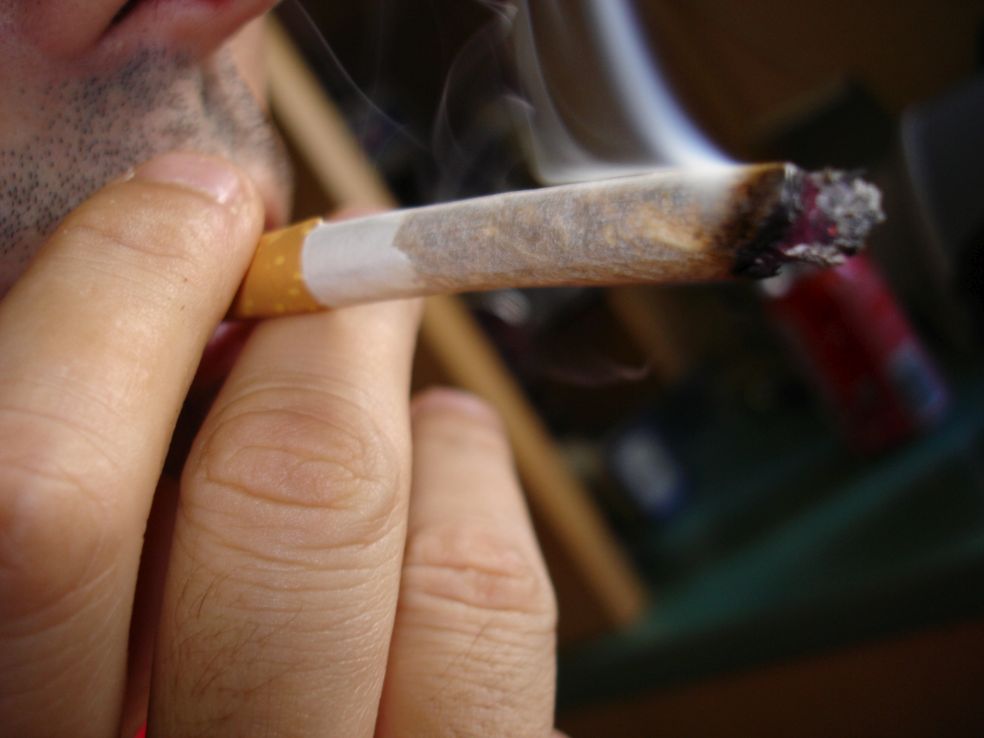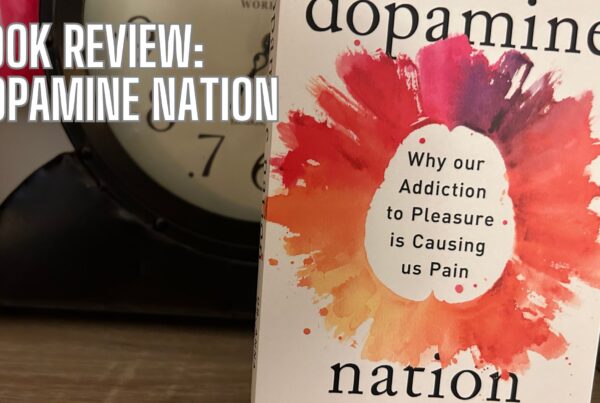Facts About Habits That Might Surprise You
I want you to imagine that you’ve just woken up in the morning. What’s the first thing you do?
Do you head to the bathroom first? Do you make yourself a coffee? Do you start off each day with a meditation or mindfulness exercise? When you have a shower or bath, how do you dry yourself off? What about how you get dressed?
For many people, this exercise highlights one vital point; they have a habit of doing the same thing as part of their ‘morning routine’ each day. Within each morning, there are a series of habits that help them to structure their morning and to get things done.
This article has collected some interesting facts about habits that may make you look at them and what you do a little differently.
What is a habit?
A habit is a routine of behaviour (action) that is repeated regularly and tends to occur subconsciously with very little conscious decision involved. It is repeated over time and generally done in the same way for the same reason each time.
If I was to ask you to describe in great detail each step of how you would ‘take a shower’, then it would most likely begin with something like ‘a desire to feel clean’ and then continue with steps such as ‘going to the bathroom’, ‘removing my clothes’ (perhaps in a particular order), ‘turning on the hot water’, ‘turning on the cold water’, ‘adjusting until the temperature is comfortable’, ‘immersing myself under the shower head’, ‘wetting the hair’, etc.
As you can see, when we stop and consider each and every step of our ‘taking a shower’ routine, we can see that it is actually quite lengthy although each step is a natural progression from the first. They link together to form a behaviour which, over repeated times, becomes a habit.
All this happen subconsciously. It becomes so ‘learned’ that it forms a part of our reality and so we don’t question it, we just allow it to naturally follow through when we feel that initial trigger. This is of enormous benefit to us personally as it means that the habit provides routine and order, doing things automatically while also taking up very little mental power to do it. For instance, now when I have a desire to be clean, my automatic response will be to subconsciously activate the ‘taking a shower’ routine.
Stop for a moment and consider how this might apply to other areas of your life. Where else do these habits exist? What is the trigger? What are the steps involved to form that routine chain?
Habits are neither good nor bad.
While we can subjectively discuss some habits as having good or bad values, your unconscious mind does not view habits as being good or bad.
I think we can all agree that brushing your teeth daily is a good habit. It promotes dental hygiene, keeps your teeth looking attractive, allows them to continue to be functional and prevents you from feeling pain caused by decay. When you weigh up all of these pros, the potential cons, such as the time taken to do it, the cost of the toothbrush and the toothpaste, seem kind of trivial. You can access that situation and feel with confidence that brushing your teeth is a habit worth investing the energy into on a daily basis, right?
You may have noticed that the word I keep coming back to is ‘feel’ and ‘feelings’. In my example with the shower, I said that if I feel like I am unclean, then I will go and take a shower. What happens if I’m in a situation where I am unable to do that? Doesn’t that feel uncomfortable! What about if I feel that my teeth are not clean?
The habit is there to protect me from the uncomfortable feelings. At some point, I felt that uncomfortable feeling and then I discovered this behaviour that seemed to take that feeling away. As far as my mind is concerned, it isn’t necessarily looking at the pros and cons of the behaviour in order to determine if I should do it but it is looking for relief from the discomfort.
Consider for a moment why many people take up smoking. In many cases, it is because of an uncomfortable feeling of not fitting in with their peers and so, to find social acceptance, they begin to smoke. They’re now one of the cool kids! With repeated behaviour, this becomes a new habit and they may continue to associate that behaviour with that feeling of acceptance. Over time, they may even find additional triggers to add to it. As adults, how many people associate smoking with a break from work? Or they find it ‘relaxing’? All these reasons begin to be associated with a behaviour that is actually nothing to do with the outcome; it has simply become part of their habit chain and they’ve ‘pattern matched’ the behaviour with the outcome.
Think about this logically for a second; smoking doesn’t actually mean you’re accepted. Smoking doesn’t actually relax the body – in fact, quite the opposite – but people confuse the deep breathing involved with smoking with the relaxation outcome. Of course, people don’t need to smoke in order to take a few minutes break from work or to even be social. These are all reasons people give as to why they maintain the habit and so often we need to stop for a moment and see the habit for what it is before we begin to dismantle the feelings associated behind it.
Habits serve a purpose.
As I mentioned earlier, a habit provides routine and order to our lives automatically without us necessarily needing to invest much thought in it. You get up in the morning and your ‘morning routine’ can ensure that you know how much time is needed in order to ‘feel ready’ before you leave your home.
You might look at someone who has a habit of smoking or drinking or any other form of addictive behavioural traits and wonder how that is actually protecting them?
When we experience uncomfortable feelings, our automatic reaction is to take those feelings away. As we highlighted before, many smokers began the habit of smoking due to an event or experience that made them feel the need to have that first cigarette. They may have had a fear of rejection or a fear of being excluded and by becoming one of the cool kids who smoked, that fear was removed.
In Acceptance and Commitment Therapy, we talk about this as being ‘experiential avoidance’. In order to avoid experiencing or feeling something, we will indulge in another activity that takes us away from being present to it. It is important to note that experiential avoidance in itself is not a bad thing. In fact, after a hard day, I like nothing more than a bit of experiential avoidance to balance things out and to make me feel ok. It can sometimes allow us to feel normal, reduce the stress levels and get on with life. The second component to all of this in ACT is about workability though; what are the long-term costs of this behaviour if it becomes the only psychological tool we have to deal with those feelings?
You’ve had a hard day. You come home from work. You have a glass of wine to relax. This happens maybe once a month. Is there a problem? Of course not. Is the wine experiential avoidance? Absolutely – it is taking you away from the stress… thankfully! Does it have a long-term impact? At once a month, not at all.
The same scenario, however, this time, it happens every night and it isn’t one glass, but two or three. Is this a workable long-term solution? I’m sure you can agree that it isn’t. The costs to you will, over time, begin to outweigh the benefit of having that habit as a coping mechanism. This would clearly indicate that the behaviour is becoming addictive and no longer serving you well.
This is why when people present with habitual behaviours that they wish to have changed, it can often be about unpacking what is happening for them to truly determine what the real underlying problem is. Often, what they’re presenting with is actually their solution to a far deeper issue operating under the surface. Smoking, drinking and drugs aren’t the problem; it’s their solution to a problem as it makes them feel good and takes away that feeling of things not being right or a belief that they’re not good enough.
How do habits work and how do you change them.
According to the book ‘The Power of Habit’ by Charles Duhigg, research has shown that all habits follow the same process loop; there is a cue (trigger) which leads to a routine (habit) which can be physical, mental or emotional, which gives a reward. The brain likes the feeling of the reward and remembers this loop as being one that pays off and, over time, this loop becomes more and more automatic.
The cue and reward become intertwined with a powerful sense of anticipation and craving emerges. When a habit emerges, the brain stops fully participating in decision making. So unless you deliberately fight a habit – unless you find new routines – the pattern will unfold automatically.
This can also be seen as a form of conditioning; much like Pavlov’s dogs who knew that the sound of the bell meant food, that cue caused an immediate response within them.
Experiments have shown that almost all habitual cues fall into one of five categories: location, time, our emotional state, other people, or the immediately preceding action. It isn’t uncommon for people wanting to make a change in their habit to keep a diary and to document these five categories to see if there are all definable patterns occurring. You may want to keep note of where you are, what time is it, what’s your emotional state, who else is around and what was the previous thing you had just done.
Once you’ve identified the trigger, you would then have a plan of action in order to replace that behaviour. For example, if you found that you were doing the same unwanted behaviour at a certain time each day, you would plan to do something else at that same time each day. As you become implementing that habit, it will become more ingrained.
There is actually the fourth stage as well which we all know as craving. What research has found is that the dopamine release usually happens when the reward of the habit is achieved but as time goes on and the habit is repeated and becomes ingrained, that dopamine spike actually happens before the routine and when the cue happens. That creates a craving – a need to have that reward.
Habits cannot be deleted or erased
Research has also found that existing habits cannot be deleted or erased. In order to change them, you need to implement in new behaviours and build new habits again.
This is why it is essential that, for people who wish to stop smoking, they need to have a sense of what they will do to replace that old habit of smoking. This can be anything ranging from deep breathing exercises which mimic the deep breathing they would do when inhaling a cigarette through to drinking more water, going for a walk, chewing a piece of gum or whatever else their creative minds may have explored.
As they revise and refine their existing habits, the old behaviours become phased out and this will also help to deal with any cravings that they may experience during that transition as well.
A habit is not necessarily an addiction although an addiction is a habit.
It is important to remember that while all addictions are a habit, not all habits are addictions. Habits can be positive or negative although they’re usually not destructive behaviours. While technically a habit can become an addiction, the defining difference tends to be around the loss of control. People will tend to feel helpless when it comes to addiction whereas habits have a belief that they can, and will, change.
There tend to be five stages of change when it comes to working with addictive behaviours. The first is ‘pre-contemplation’ where the person sees no need or has no desire to change. They’re still recognising the benefits from their potentially destructive behaviour. They may also be in complete denial at this point, rationalising and justifying the benefits of their behaviour.
As the person recognises that there is a problem, they reach the ‘contemplation’ stage, and this may lead to the ‘preparation’ stage where the person places to change soon… but not now.
As they reach the ‘action’ stage, the person admits to having a problem and starts to take positive behaviour/action away from the destructive behaviour. During this stage, they may be dealing with an intense amount of conflicting emotions and may need to stay away from triggers until new behaviours have solidified.
It should also be noted that, as part of this process, a person may wish to explore why it is that they’ve become so reliant upon the habitual behaviour. As we mentioned earlier, this kind of behaviour tends to be more about taking away uncomfortable thoughts and feelings and making someone feel good. Without actually exploring what is the underlying greater issue, there is always the risk that someone could just replace one type of destructive addictive behaviour with another.
Hypnotherapy and habitual behaviour.
There is a lot of evidence out there to support hypnotherapy in working with addictive behaviour. According to New Scientist Magazine, issue 1845, 31st October 1991, Hypnosis is the most effective way to stop smoking. To find the most effective way to give up smoking, research was done at the University of Iowa that carried out a meta-analysis, statistically combining the results of more than 600 studies covering almost 72 000 people from America, Scandinavia and elsewhere in Europe. They found a four-session hypnosis protocol for stop smoking proved far more effective than any of the traditional methods.
For many people, hypnotherapy helps them not only to safely explore and develop new habitual behaviour but to also unpack and resolve some of the beliefs and experiences that have been driving that behaviour in the first place. For this reason, hypnotherapy can help to fully dismantle some habitual behaviours while new behaviours are being created and ingrained.
Book Your FREE Half Hour Consultation NOW!
Download the FREE Ebook ‘5 Steps To Becoming a Non-Smoker’ by entering your details here.
Release Hypnosis Melbourne Hypnotherapy
Since 2016, Lawrence Akers has been working under the name Release Hypnosis offering Hypnotherapy and ACT based work to the people of Melbourne or an online service. Based on St Kilda Rd, Release Hypnosis is an easy and convenient location to get to and accessible by the ANZAC station train and tram stop. Release Hypnosis can help with a wide range of presenting issues, and I offer a free 30 minute no obligation discovery call for those who are unsure if hypnotherapy is the right way forward for them.
Book Your FREE 30 Minute Consultation With Release Hypnosis NOW!
You may also like to read:
Release Hypnosis’s Lawrence Akers on JOY FM
Embrace Your Confidence and Eliminate Toxic Shame Workshop
We’re Enjoying Our Third Anniversary
Breaking Addiction Through Counselling and Hypnosis








